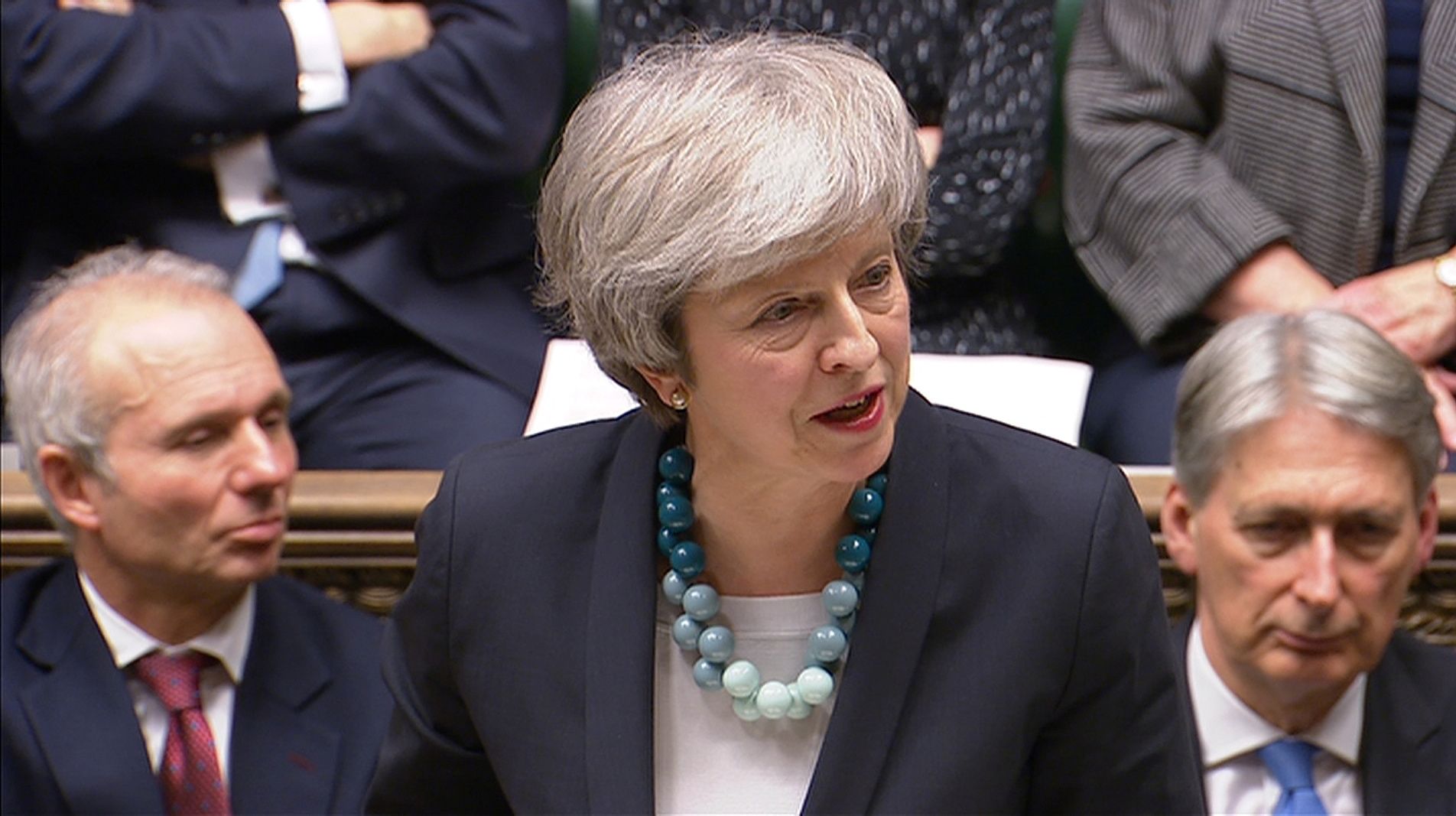As political humiliations go, it's tough to find a deeper dish of humble pie (presumably shepherd's) than what UK Prime Minister Theresa May tucked into yesterday. Rather than risk a resounding defeat in Parliament for the controversial Brexit agreement that her government has negotiated with the European Union, she called off the vote altogether.
She didn't have much choice. The agreement on the terms of UK's exit from the EU was headed for a disastrous defeat. Remainers obviously saw nothing to love in it, but more importantly, hardline pro-Brexit members within her own coalition thought the proposal too "soft": it would have allowed the UK to remain in the EU Customs Union indefinitely while negotiators figured out how to extricate the UK from the EU without cutting off Ireland (an EU country) from Northern Ireland (part of the UK).
With the vote postponed, it's not clear what comes next. Ms. May pledged yesterday to secure reassurances from Brussels. But EU negotiators say after more than a year of tortuous negotiations, the books are closed for good. To sharpen the point, EU leaders announced fresh preparations for the economic blow of a "no-deal" Brexit, in which the UK crashes out of the EU in March without any new commercial agreements in place.
Politically, this result leaves Ms. May hanging by a thread that, for all the country's anguish over Brexit, no one is yet willing to cut. Critics within her own Tory party don't' have the votes to oust her, but neither do does the opposition Labour party. She could call new elections in a bid to bolster support in Parliament for her more moderate vision of Brexit, but her call for early elections last year didn't go so well, and she looks weaker now than she did then.
What about a second referendum? Prospects of a do-over were given a fresh lift on Monday when the EU's highest court ruled London is free to unilaterally cancel Brexit without the consent of the other 27 EU members. Still, another referendum is a very remote prospect – contentious and bungled as Brexit has been, lawmakers are loath to revisit a decision made by a majority of voters that could very well produce the same result.
For now, the clock continues to tick – with or without an agreement, the UK has just 108 days until its planned departure from the EU.
